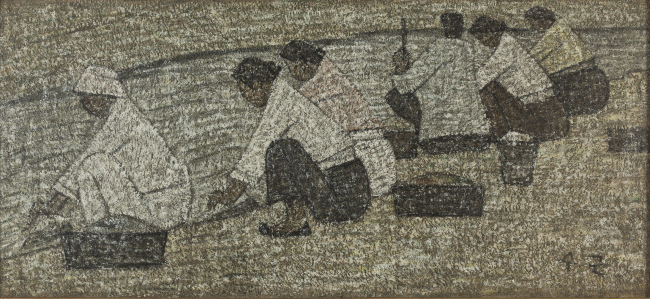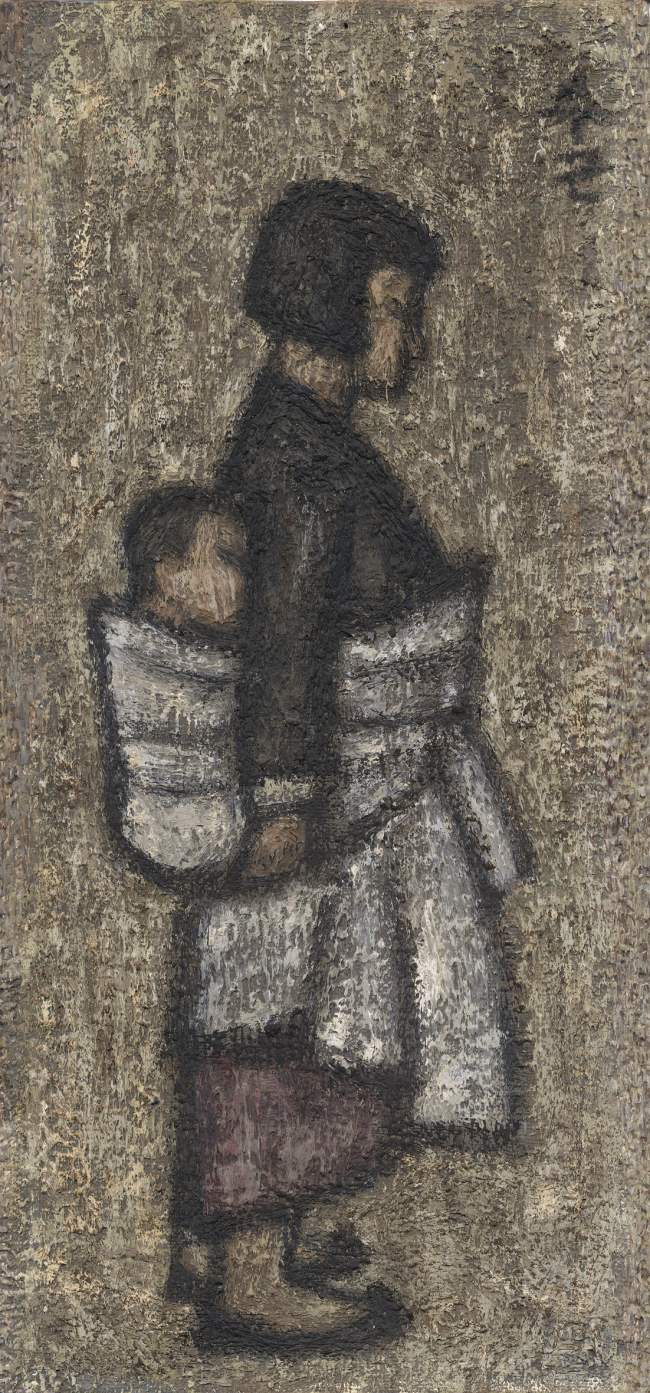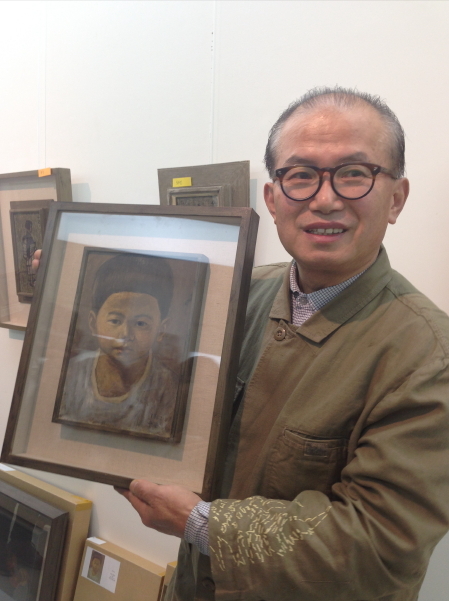 |
“Washerwomen by the Stream.” (Gana Art Center) |
Every country has an artist who represents its sentiment and whose style inspires generation after generation of artists. In Korea, it is Park Soo-keun (1914-1965), a first-generation Western-style Korean painter whose style has touched the hearts of many Koreans.
But more recently he has been often undervalued and received little attention for his great contributions to the Korean art community, largely due to the downturn of the local art market that started in 2009. Although Park’s paintings would still set records in international auctions, the average price has been on the decline.
As this year marks the centennial of his birth, an upcoming retrospective of Park seeks to revive public interest in the master painter.
“Park Soo-keun is one of the artists who represent the Korean art circle, but has been underestimated since the downturn of the Korean art market. As Korean collectors turn away from compatriot artists, so do foreign collectors,” said Lee Ok-kyung, president of Gana Art Center, in the press preview of Park’s paintings at the center in Pyeongchang-dong, Seoul, on Tuesday.
The exhibition will be held at the Gana Insa Art Center in Insa-dong, one of the major tourist destinations lined with antique shops in Seoul from Jan. 17 to March 16.
According to Lee, the maximum estimated value of Park’s paintings fell by 70 percent, pulling the price for a standard size down from 400 million won to 250 million won.
 |
“A Girl Tending to an Infant.” (Gana Art Center) |
“Now it has started to adjust, but compared to other big name artists of foreign countries, Park’s paintings have still not recovered to the level that they deserve. I hope the exhibition will provoke interest in Park and bring him the status he deserves,” said Lee.
Lee added that Park is still one of the popular artists along with Lee U-fan and Kim Tschang-yeul favored by Asian collectors who appreciate the unique value of Park’s works depicting the life of common people in Korea’s turbulent modern history.
The retrospective will feature about 120 works by Park, including 90 oil paintings, watercolor paintings and 30 sketches on loan from private collectors. Its focus is on unveiling his works that haven’t been shown in previous exhibitions.
The exhibition will guide viewers through the beginning of his artistic career in the 1950s toward the end and help them better understand the artist with related documents and information. Some notable paintings include the portrait of Park’s eldest son, drawn when he was 5, a portrait of his sister as well as the painting of Park’s illiterate neighbor who used to sell oil bottles and women washing clothes by the stream.
 |
Park Sung-nam, the eldest son of the late painter Park Soo-keun, poses for a photo with a portrait of him drawn by his father when he was 5.(Lee Woo-young/The Korea Herald) |
“The paintings are noteworthy because they have stories. The stream where women gather to wash clothes was the first place where my father and mother met for the first time. The lady selling oil door to door used to give a bottle of oil for free to my mother, who read her letters to her and wrote replies on her behalf because she was illiterate,” said Park Sung-nam, the artist’s eldest son.
Although many popular paintings of these periods consist of those reflecting the upscale culture influenced by Western countries, Park said his father remained true to depicting the lives of ordinary people around him in his dark and roughly textured paintings.
“My father drew the people who stayed where they belonged and did their work patiently during the difficult times in Korean history, marked by the Japanese colonial era in the early 1900s and the Korean War, the April antigovernment revolution, famine, spread of disease, and poverty. The people were his neighbors,” said the 67-year-old Park during the press preview.
“The overarching theme of my father’s works was their good-heartedness and sincerity. Even as they went through difficult times, he was trying to reflect the goodness inside of Korean people,” Park noted.
The retrospective of Park Soo-keun runs from Jan. 17 to March 16 at Gana Insa Art Center in Insa-dong, Jongno, Seoul. For more information, call (02) 720-1020, or visit www.ganaart.com.
By Lee Woo-young (
wylee@heraldcorp.com)










